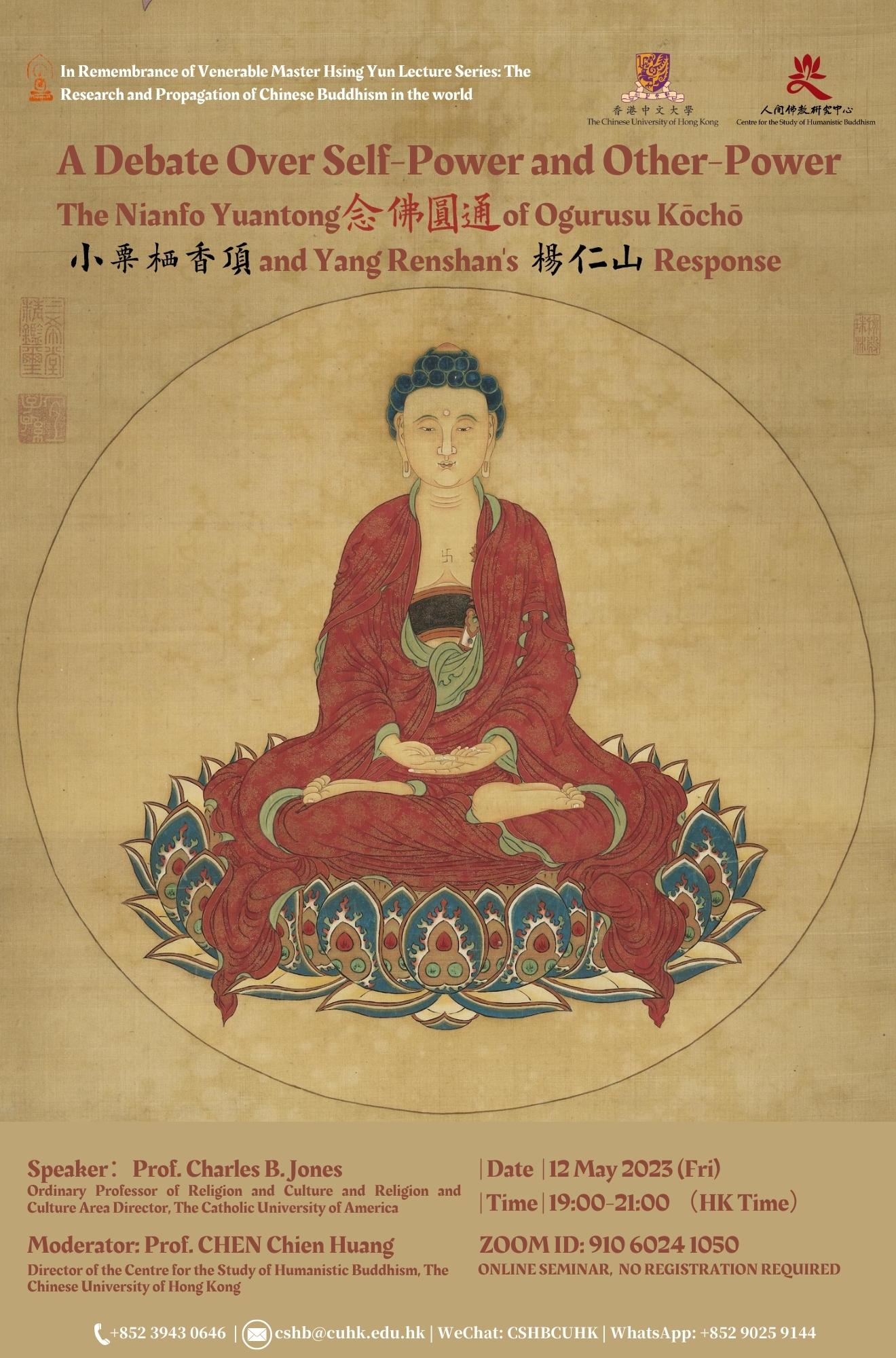Events
A Debate Over Self-Power and Other-Power: The Nianfo Yuantong 念佛圓通 of Ogurusu Kōchō 小粟栖香頂 and Yang Renshan's 楊仁山 Response
12 May 2023
19:00-21:00 HK Time
Online broadcasting on Zoom
【Joining the Seminar online】
Link to ZOOM Meeting: https://cuhk.zoom.us/j/91060241050
ZOOM ID: 910 6024 1050
Prof. Charles B. Jones, Ordinary Professor of Religion and Culture and Religion and Culture Area Director, The Catholic University of America
Charles B. Jones was born in North Carolina in 1957, but grew up in a military family that moved frequently both within the U.S. and abroad. He graduated from Morehead State University (Kentucky) in 1980 with a degree in music, and went on to earn the Master of Theological Studies cum laude from the Divinity School of Duke University in 1988 and the Ph.D. in History of Religions from the University of Virginia in 1996.
Since joining the faculty of the STRS in the fall of that year, he has pursued research in the history of Chinese Buddhism and the Christian practice of interreligious dialogue. He has also taught courses for Virginia Theological Seminary and the Smithsonian Associates, and recorded a set of lectures on theories in religious studies for The Teaching Company. He has consulted with the U.S. Department of State, the National Endowment for the Arts, the National Endowment for the Humanities, and was a Fulbright scholar in Taiwan during the 2004-05 academic year.
NO REGISTRATION REQUIRED.
Phone:3943 0646
Email: cshb@cuhk.edu.hk
This lecture will explore over Pure Land doctrine between a Japanese Jōdo Shinshū missionary to China named Ogurusu Kōchō 小粟栖香頂 (1831–1905) and the renowned lay Buddhist and publisher Yang Wenhui 楊文會 (or Yang Renshan 楊仁山, 1837–1911). Yang had received a copy of Hōnen’s Senchaku hongan nenbutusu shū 選択本願念佛集 (Anthology on the Nenbutusu of the Select Original Vow). Finding its interpretation of Pure Land objectionable, he wrote some comments on it and sent it back to Japan, where it came to Ogurusu’s attention. Ogurusu defended Hōnen’s teaching with a work called Nianfo yuantong 念佛圓通. Yang responded with a critique called Ping Xiaosuqi nianfo yuantong 評小粟栖念佛圓通 (Critique of Ogusuru’s Nianfo Yuantong). Ogurusu was by then too ill to respond further, so a fellow missionary, Ryūsen 龍舟 (1861–1931), took up Yang’s objections in a 1901 work called Nenbutsu entsū tudusen 念佛圓通続貂 (Continuation of Nianfo Yuantong). With that the exchange ended. This lecture will present a summary of the historical background of this controversy, reviews some of its arguments on self-power and other-power with specific reference to the generation of bodhicitta, and offers some conclusions.
【Language】English.


